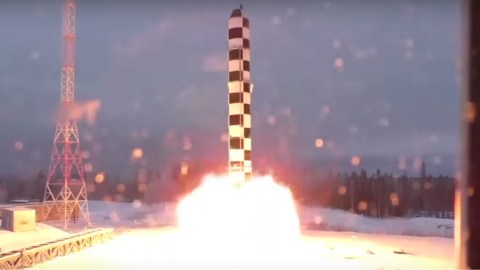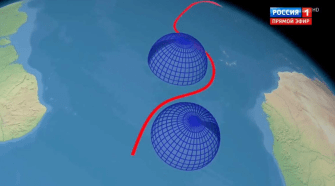Putin claims Russia has “invincible” nuclear weapons that can bypass U.S. defenses

President Vladimir Putin claimed in an annual state of the nation speech Thursday that the Russian military had developed new weaponry that renders missile defenses “completely useless.”
Addressing the Russian parliament for nearly two hours in a venue just outside the Kremlin, Putin outlined several new weapons: cruise missiles, underwater drones, and a hypersonic missile that can travel several times the speed of sound.
All of the weapons are reportedly nuclear-powered, a feature that would significantly extend the range of the missiles. The new hypersonic cruise missile would be able to carry a nuclear warhead and fly “with a practically unlimited range and an unpredictable flight path, which can bypass lines of interception and is invincible in the face of all existing and future systems of both missile defense and air defense,” Putin said.
The underwater drones could also launch a nuclear warhead from anywhere in the world.
“Means to resist them simply don’t exist in the world today,” Putin said of the underwater drones.
His speech was accompanied by graphics that showed how the weapons could theoretically bypass U.S. naval defense systems.

Graphic displayed during Putin’s speech.
Russian lawmakers applauded after being shown videos of the weapons.
Putin’s claims are hard to verify. But if Russia had been testing nuclear-powered weapons, there should theoretically be evidence of it, as Reuter’s Gerry Doyle noted on Twitter.
it strikes me that if russia really did test a nuclear-powered cruise missile, and they have not figured out a way to keep it from spraying radioactive particles, there should be some atmospheric traces
— Gerry Doyle (@mgerrydoyle) March 1, 2018




